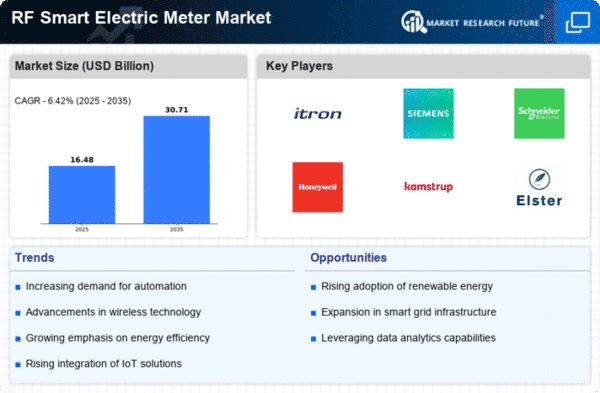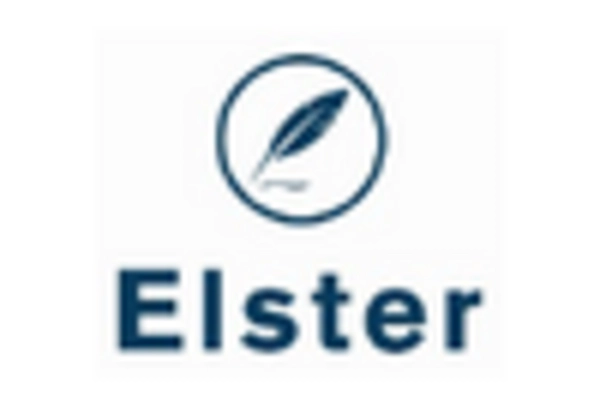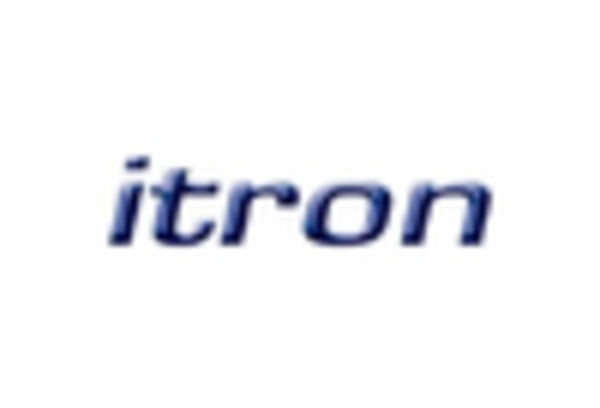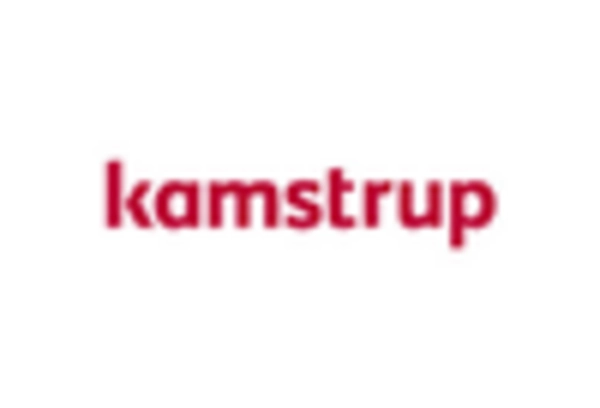Market Growth Projections
The Global RF Smart Electric Meter Market Industry is projected to experience robust growth in the coming years. With a market value anticipated to reach 25 USD Billion in 2024 and potentially expanding to 60 USD Billion by 2035, the industry is on a promising trajectory. The compound annual growth rate (CAGR) of 8.28% from 2025 to 2035 indicates a strong upward trend, driven by various factors such as technological advancements, government initiatives, and increasing consumer awareness. These projections highlight the significant potential for RF smart electric meters to transform energy management practices globally.
Rising Consumer Awareness
Rising consumer awareness regarding energy consumption and its environmental impact is influencing the Global RF Smart Electric Meter Market Industry. As individuals become more conscious of their energy usage, there is a growing demand for technologies that provide transparency and control over energy consumption. Smart electric meters empower consumers by offering detailed insights into their energy habits, enabling them to make informed choices. This shift in consumer behavior is likely to drive the adoption of RF smart electric meters, as households seek to reduce their energy bills and carbon footprints. The increasing focus on sustainability is expected to further accelerate market growth.
Growing Demand for Energy Efficiency
The Global RF Smart Electric Meter Market Industry is experiencing a surge in demand driven by the increasing emphasis on energy efficiency. Governments worldwide are implementing stringent regulations aimed at reducing energy consumption and promoting sustainable practices. For instance, the adoption of smart meters allows consumers to monitor their energy usage in real-time, leading to more informed decisions regarding energy consumption. This trend is expected to contribute to the market's growth, with projections indicating a market value of 25 USD Billion in 2024. As awareness of energy efficiency continues to rise, the demand for RF smart electric meters is likely to expand significantly.
Government Initiatives and Incentives
Government initiatives and incentives play a pivotal role in shaping the Global RF Smart Electric Meter Market Industry. Many countries are offering financial incentives and subsidies to encourage the adoption of smart metering technologies. For example, various national programs aim to replace traditional meters with smart alternatives to enhance grid reliability and efficiency. These initiatives not only facilitate the transition to smart metering but also contribute to achieving national energy goals. As a result, the market is expected to witness significant growth, potentially reaching 60 USD Billion by 2035, driven by supportive government policies and funding.
Advancements in Communication Technology
Technological advancements in communication systems are propelling the Global RF Smart Electric Meter Market Industry forward. The integration of wireless communication technologies, such as RF and IoT, enhances the functionality of smart meters, enabling seamless data transmission and remote monitoring. This innovation not only improves operational efficiency for utility companies but also provides consumers with detailed insights into their energy consumption patterns. As a result, the market is poised for substantial growth, with a projected compound annual growth rate (CAGR) of 8.28% from 2025 to 2035. This growth trajectory reflects the increasing reliance on advanced communication technologies in energy management.
Integration with Smart Grid Technologies
The integration of RF smart electric meters with smart grid technologies is a key driver for the Global RF Smart Electric Meter Market Industry. Smart grids facilitate two-way communication between utilities and consumers, enhancing grid management and reliability. By incorporating smart meters into the grid, utilities can optimize energy distribution, reduce outages, and improve demand response capabilities. This integration is essential for modernizing energy infrastructure and is likely to contribute to the market's expansion. As utilities invest in smart grid technologies, the demand for RF smart electric meters is expected to rise, further solidifying their role in the future of energy management.
















